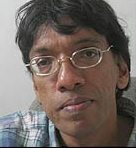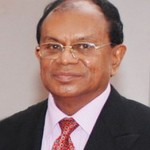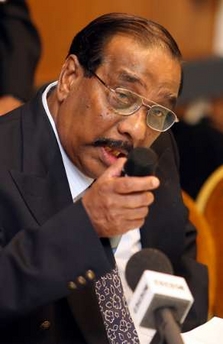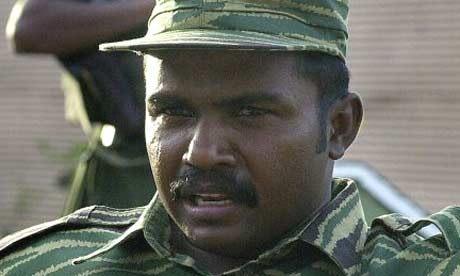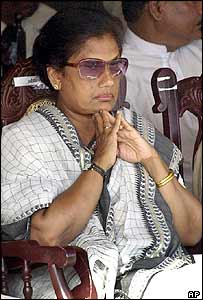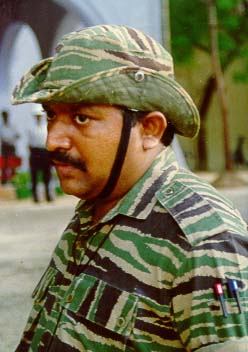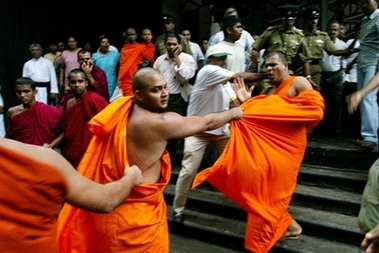–
I want to be the rainbow
From the inside out
To show all my colours
Colours that define me
Colours that make me whole
But it’s so hard
For I wear many masks
The truth sets me free
Miriam WandiaKaloki – from her poem ‘Masks’ in Human Rights and Culture (AHRC) Vol 4 Issue 13
Pakistan went to the polls a couple of weeks ago. Though the full results are still not known, it is clear that Nawaz Sharif’s Muslim League has won sufficient National Assembly seats to be able to form a stable government in Islamabad. His party will also be able to form a government in Punjab Province. The incumbent Pakistan People’s Party dominated by the late Benazir Bhutto’s family was badly beaten at the election to the National Assembly but will continue to rule the Province of Sindh. Pakistan’s cricket legend Imran Khan’s Movement for Justice (PTI) took control of Khyber–Pakhtunkhwa (former North West Frontier Province) and had an improved result from previous National Assembly e3lection. In the fourth Province of Balochistan, a regional party seems likely to control the majority of seats. Significantly, to ensure a fairer poll, the Election Commission conducted the National Assembly and all the Provincial Assembly polls on the same day.
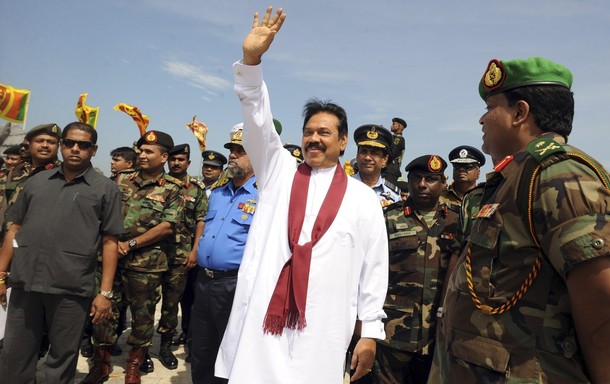
Mr. President, victory over whom?
What was noteworthy about this election was that it was the first time since Independence in 1948, that an elected government was allowed to complete its term in office. In all previous instances, no elected government was allowed to complete its term of office. It was always interrupted by a military coup. So 2013 will be momentous in Pakistan’s political history in that one elected government is about to be inaugurated in office to succeed another following a democratic election, Nawaz Sharif who seems set to take over as Prime Minister was earlier removed from office 1n 1999 in a military coup led by General Musharaff. Ironically. in 2013 when Nawaz Shariff is installed as Prime Minister, Musharaff will be serving his time in jail, following a Supreme Court order delivered before Nawaz Sharif’s election.
This is the third time Sharif is to serve office in Pakistan as Prime Minister. David Blair and Rob Crilly writing in the UK’s Daily Telegraph have stated that Sharif’s first term between 1990 and 1993 ended in ignominy when he was sacked for corruption; he was a steel magnate tainted by many allegations of dodgy dealings. During his second term, between 1997 and 1999, he re-wrote the Constitution, made laws making it obligatory for MPs to vote for the party line, and sent mobs to threaten the Supreme Court Judges. Along the way, he armed the Taliban in Afghanistan, gave Pakistan the nuclear bomb, and blundered into an undeclared war with India – the Kargil affair in 1999 when he sent Pakistani troops deep into Indian-held territory. But he was not able to rein in the powerful Army who sent him off to Saudi Arabia. The Press described his government at that time as ‘one of the most inept in Pakistan’s history’.
Time can change political leaders
But time changes men and women and also popular sentiment about their political lesders. Most Pakistan voters felt that during his decade long absence from the Pakistani political scene, Sharif had matured a lot and is now committed to ‘managing the economy and pursuing political reconciliation both domestically and in external relations. The Dawn, one of Pakistan’s leading daily newspapers wrote that Sharif’s election was a hugely important moment in Pakistani history. Sharif fought a campaign ‘to be proud of’. Though relentlessly attacked from all sides, he ‘resolutely kept his focus on what needs to be done to solve grave national issues’, the dire economy, crippling power shortages and endemic tax evasion. Most Pakistan voters seem to have believed him to be sincere. Though he had courted the Taliban in his previous terms, the voters thought he was best poised to tackle the Taliban. He has plans to start immediate talks with ‘all sides’, including the Army and the Taliban to end the violence. He is also keen to mend fences with India with whom there has been no durable peace since partition in 1947. He has already invited India’s Prime Minister Manmohan Singh to his swearing-in as Prime Minister. He probably knows that political reconciliation at home and with the neighbours will not be easy. While attempting reconciliation, he will have to be constantly looking over his shoulders at both the powerful Army as well as at the equally powerful insurgent Taliban movement. But he is now politically more mature to handle this.
The election that Sharif brought Sharif to power was not without controversy. The Taliban engaged in widespread violence and intimidation and did not allow all the candidates to campaign freely. Nawaz Sharif and Imran Khan however seemed to have been spared the wrath of the Taliban and seemed to have been allowed to attend and address election rallies. Not so lucky was the Pakistan People’s Party. Bilawal Bhutto Zardar, the young son of Benazir Bhutto and Asif Ali Zardari, the current Chairman of the PPP, had to confine himself to speaking through video messages from his exile in Dubai. Imran Khan has referred to intimidation of many of his supporters that prevented them from going to the polling booths to exercise their franchise. Most of the acts of violence and intimidation were by the religious extremists, including the Taliban. But the Pakistani voter defied these extremists to go to the polling both. The turn-out at this election was over 60%, the highest ever in Pakistan’s turbulent electoral history. Imran Khan has said that his party intends to challenge the poll results because of the widespread intimidation. But it unlikely, given the record turn-out of voters, the margins of victory and the regional trend in voting which resulted in victories for all parties at the provincial assembly elections, that there was massive intimidation and/or vote-rigging Sharif has told Imran Khan to show the ‘sportsman’s spirit’ by accepting the results!
Imran Khan himself is now recovering in hospital from a fracture in his spine caused by a fall from an election platform a few days before the election. There was, of course, no suggestion, that the fall was caused by any act of sabotage. But one of Imrqn Khan’s leading supporters was shot dead two days after the election in what was clearly a political assassination. Kahn has accused one of the parties of religious extremism as being responsible for this killing. The problem with Pakistan is that it was founded on the basis of religion. Mohamed Ali Jinnah, their independence leader, who initially stoked the flames of communalism, died soon after independence from British rule. Had he lived, he may have been able to contain religious extremism as he was by nature a liberal though ambitious politician. Pakistan, unlike India, did not have outstanding liberal visionaries like Gandhi, Nehru, Rajagopalachari, Maulana Abdul Kalam Azad and Humayun Kabir to direct the energies of a post-independence people in the path of religious and linguistic harmony.
Lessons for Sri Lanka
The first transition from one democratically elected government to another in Pakistan’s political history has lessons for Sri Lanka. The Supreme Court of Pakistan played an important role in clipping the wings of the powerful Army when the Army asserted themselves to interfere with democratic governance. The Supreme Court was also held he powerful President accountable for maintaining the rule of law. Pakistan is a partially failed state with the economy in a crisis state. There are twenty-hour black-outs which deal a crippling blow to industry. Tax evasion is a huge problem with the middle and working classes having to bear the brunt of falling resources for development work. The Army had enjoyed too much power that it tended to interfere in civilian affairs with disastrous results. Violence has reached levels when even Test playing cricketing countries avoid Pakistan as a venue for their matches. Corruption is becoming endemic. These problems, which the new Sharif government is now required to tackle. will require a change in the culture of a people. They have for over sixty years been plagued by military coups and corrupt politicians. It will need enormous courage and a singular vision on the part of the Nawaz Sharif government to change all this. Having been away from the political scene for over a decade, he comes in as a new broom with the vision and the capacity to bring about the changes that are necessary, despite his previous government being considered inept. Only time will tell if he can deliver. He was elected because the voter believed that he could do so, that he had shed his previous image as another run-of the mill Pakistani politician,
The problems the Pakistani people now face are common to the problems that we in Sri Lanka have to contend with. As in Pakistan, they have been caused primarily by corrupt and inept politicians, who used religious and linguistic extremists and/or used the language of extremism to cover up their own corruptness and ineptness. There are increasing signs that the voters in Sri Lanka are increasingly losing patience with those promote religious, linguistic or ethnic hatred. Two weeks ago, the government observed ‘Victory Day’, an annual event to celebrate the crushing of the northern insurgency. They were bypassing the LLRC recommendation that instead of this display of triumphalism, National Day 4th February include a separate event to express solidarity and empathy with all victims of the conflict and to commit ourselves to peaceful future. The government appointed LLRC also wanted the practice of singing the National Anthem in both Sinhala and Tamil, to the same melody, to be continued and supported. These two eminently suitable and easily implementable recommendations have been, obviously deliberately, ignored.
Dr Rajasingham Narendran, who can hardly be accused, even remotely, of being an LTTE fellow traveler, and who is regularly quoted by the state media, has written a detailed critique of the triumphalist speech of President Mahinda Rajapakse at the recent ‘Victory Day’ speech. One hopes that the Island will be bold enough to publish the full critique. But this column wishes to quote a few samples from it. Words in bold are from Rajapakse’s speech:
“Today we have the fourth opportunity to celebrate with dignity the great victory of our Motherland.”
Mr. President, victory over whom? I raise this question in terms of the word ‘Conquered’ used in a war memorial in Mullaitivu. Was it a victory over the LTTE or the Tamils? Motherland! Whose? I did not see any opposition figures in the podium? There were also no representatives of the Tamils, who were liberated by the armed forces, on the podium. I also did not see any Hindu priests, Christian padres or Muslim Moulavis on the podium, except for a handful of Buddhist monks. The absence of Sarath Fonseka, the man who led the army from the front, at this function and his name and role not being even mentioned were glaring omissions that portrayed the smallness this great country is being reduced to.
Further, the language in the inscription on the war memorial at which flowers were laid was only in Sinhalese. Why? What does this imply in terms of the word ‘Motherland’ used by you? Is Tamil not the language of the ‘Other’ children of ‘Mother Lanka’? Why were these inscriptions not also in Tamil- an official language and English- a link language? What is the message this government is conveying?
“We know that those who had ceasefire agreements that betrayed the country to the Tigers are making every effort to make us forget the heroism of this nation.”
This is a very unfair and inaccurate statement. It is the last ceasefire agreement signed with Norwegian mediation that exposed the LTTE for what it was to the Tamils and helped weaken it from within. It was an important prelude to what the last war achieved.
“Similarly, this era should go down in history as one that carried out a major transformation to prevent the occurrence of war again.”
What sort of major transformation? Are increased militarization and surveillance the only answers? Should not the political needs, concerns and fears of the Sinhalese, Tamils and Muslims be addressed in a more Statesman-like manner? Isn’t it important to remember that each one of us is a child of Mother Lanka and the weaker in political terms, need special care from your government, which at the moment is in charge of affairs here.”
Why were warnings against commemorating the war-dead among the Tamils, issued by the military and not the police? Why has not the government organized official events to commemorate all the riot/war / insurgency dead in this country? If the government can publicly celebrate victory, why can’t the Tamils publicly commemorate the innocent victims of war?
Why should almost 7000 acres of land that was commandeered for reasons of war 25 years back from their owners, be not returned to the rightful owners, four years after the war ended? What is the moral justification for acquiring these lands? Will this help with reconciliation or win the hearts and minds of the Tamils? How will these acquisitions prevent the recurrence of war? Do you understand that the Tamils will not want a war in their midst for the next thousand years? You have to know what the Tamils think, better and trust their good sense. They have learned more lessons the hard way than you and your government have learned.

